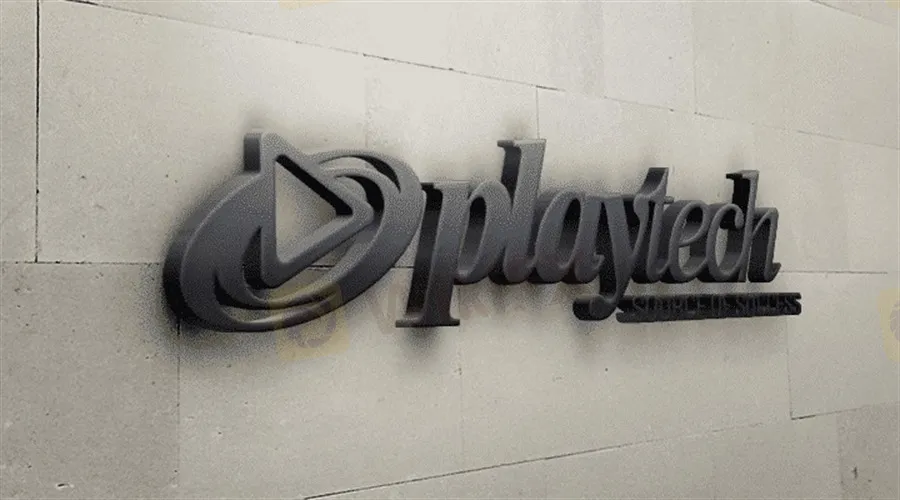简体中文
繁體中文
English
Pусский
日本語
ภาษาไทย
Tiếng Việt
Bahasa Indonesia
Español
हिन्दी
Filippiiniläinen
Français
Deutsch
Português
Türkçe
한국어
العربية
Playtech Sees 12% Jump in 2021 Revenue, Profit Soars
Abstract:Playtech (LON: PTEC) released its annual financials for the year 2021 on Thursday, reporting a 12 percent jump in its revenue to €1.2 billion.

Business went up in both B2B and B2C divisions.
The company focused on its US strategy and expansion in Latin America.
Other key financial metrics also came in solid for the period. The adjusted EBITDA for the period came in €317.1 million, which is 25 percent higher than the previous year, whereas the adjusted post-tax profit was 366 percent higher at €127.6 million.
In addition, the company generated €686.7 million as reported post-tax profits from its continuing operations, compared to a loss of €73.1 million in the previous year. The reported diluted earnings per share came in at 220 euro cents, while the adjusted figure came in 365 percent higher at 40.9 euro cents.
“Our full year results demonstrate the quality of Playtech's technology and the momentum across the Group,” said Playtechs CEO, Mor Weizer.
Growth in Every Division
Playtech is one of the largest gambling software providers based in London. Over the years, the company expanded its business in several other vertices and jurisdictions.
Revenue from its business-to-business (B2B ) division grew by 11 percent to come in at €554.3 million. Its business from the Americas also jumped by 64 percent last year. Meanwhile, the company continued to increase its presence in the United States, Latin America and Europe.
The total B2C revenue came in at €663.7 million, which was higher €596.3 million than seen in the previous year. The adjusted EBITDA from this division stood at €177.9 million.
“Our strong performance is underpinned by our B2B business, in particular the tremendous growth we have seen in the Americas. We have made real progress in the execution of our US strategy, supported by new licences, new launches and new partnerships, and we continue to go from strength to strength in Latin America, buoyed by new strategic agreements across the region,” Weizer added.

Disclaimer:
The views in this article only represent the author's personal views, and do not constitute investment advice on this platform. This platform does not guarantee the accuracy, completeness and timeliness of the information in the article, and will not be liable for any loss caused by the use of or reliance on the information in the article.
Read more

The Hidden Checklist: Five Unconventional Steps to Vet Your Broker
Forex broker scams continue to evolve, employing new tactics to appear credible and mislead unsuspecting traders. Identifying these fraudulent schemes requires vigilance and strategies beyond the usual advice. Here are five effective methods to help traders assess the legitimacy of a forex broker and avoid potential pitfalls.

Doo Financial Obtains Licenses in BVI and Cayman Islands
Doo Financial, a subsidiary of Singapore-based Doo Group, has expanded its regulatory footprint by securing new offshore licenses from the British Virgin Islands Financial Services Commission (BVI FSC) and the Cayman Islands Monetary Authority (CIMA).

CFI’s New Initiative Aims to Promote Transparency in Trading
A new programme has been launched by CFI to address the growing need for transparency and awareness in online trading. Named “Trading Transparency+: Empowering Awareness and Clarity in Trading,” the initiative seeks to combat misinformation and equip individuals with resources to evaluate whether trading aligns with their financial goals and circumstances.

Malaysian-Thai Fraud Syndicate Dismantled, Millions in Losses Reported
The Royal Malaysia Police (PDRM) has received 26 reports concerning the Nicshare and CommonApps investment schemes, both linked to a major fraudulent syndicate led by a Malaysian citizen. The syndicate’s activities came to light following the arrest of its leader by Thai authorities on 16 December.
WikiFX Broker
Latest News
ASIC Sues Binance Australia Derivatives for Misclassifying Retail Clients
WikiFX Review: Is FxPro Reliable?
Malaysian-Thai Fraud Syndicate Dismantled, Millions in Losses Reported
Trading frauds topped the list of scams in India- Report Reveals
YAMARKETS' Jingle Bells Christmas Offer!
AIMS Broker Review
The Hidden Checklist: Five Unconventional Steps to Vet Your Broker
WikiFX Review: Something You Need to Know About Markets4you
Revolut Leads UK Neobanks in the Digital Banking Revolution
Fusion Markets: Safe Choice or Scam to Avoid?
Currency Calculator


